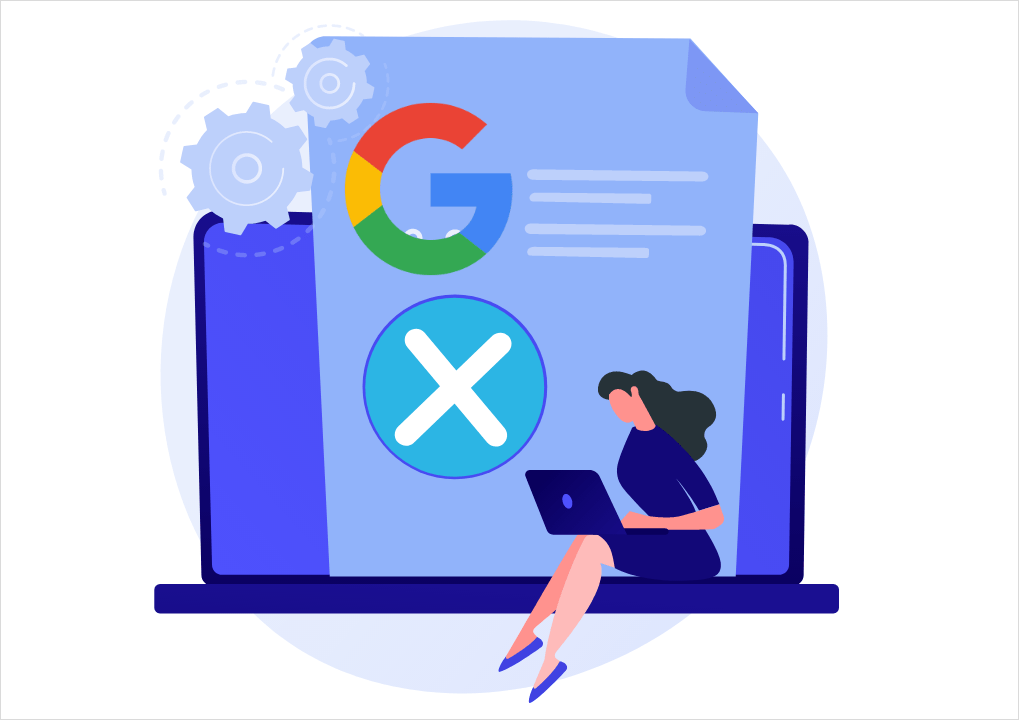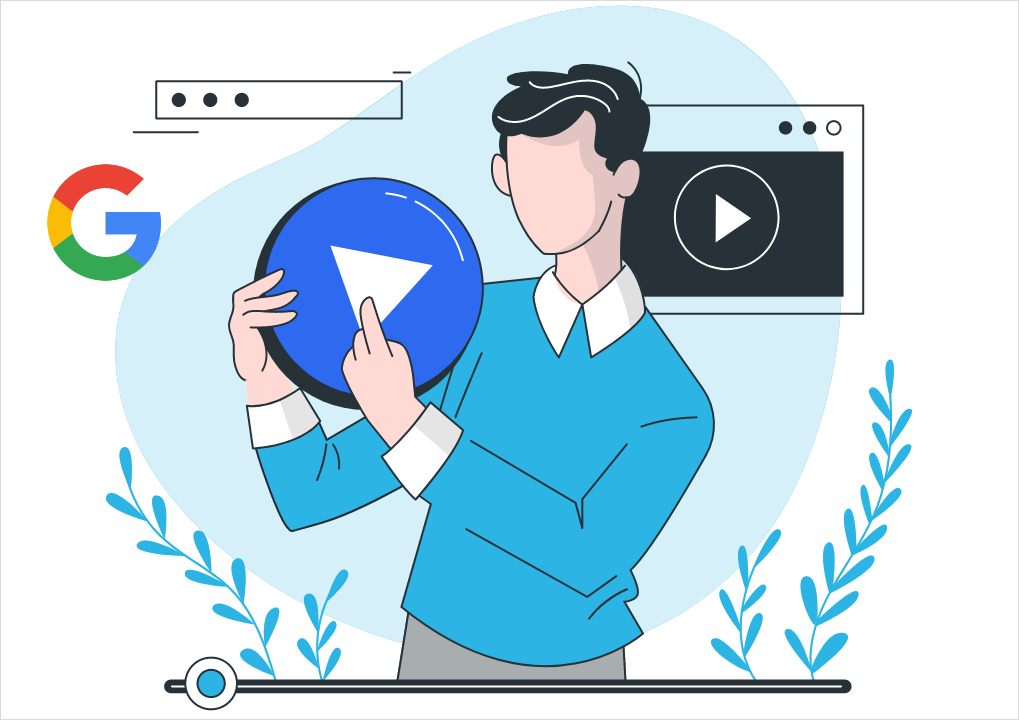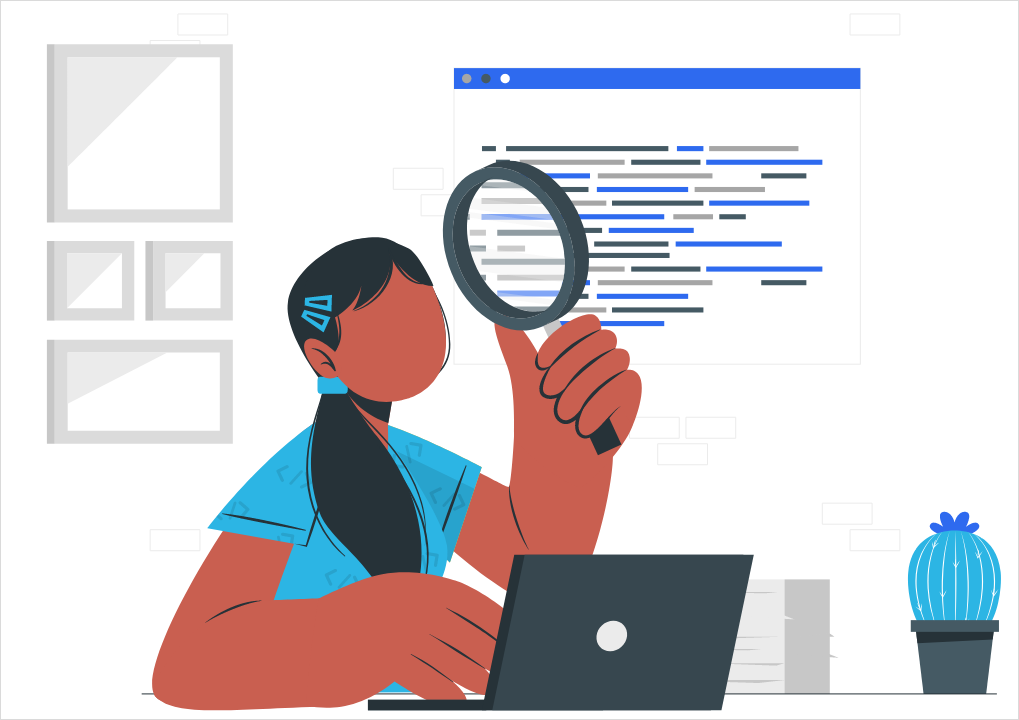If you’ve been in the PPC field for a while, even if it’s a little while, you are familiar with the most popular issue that we deal with: Having Google Ads randomly shutting down your account and refusing to give it back.
I believe this problem wouldn’t be so terrible if they gave you an explanation on why they chose to permanently ban your thousands-of-dollars-worth Ad Campaign, but they don’t. All you get is a very polite email letting you know you are just not allowed anymore and that you can fill out a complaint form (that is rarely taken into consideration) and wait to see what happens. Since there is no possibility of talking to an actual Google Ads human being that can explain what happened, you have me here to give you a few warnings. So today, my friends, we are going to go through some of the most popular reasons Google’s chosen to ban accounts, shall we?
Anything illegal
As obvious as this may sound, it’s very important to make a point out of it. Google Ads will, of course, be aware of what is it that you are advertising and they definitely will make sure that it’s legal to advertise it. No matter how low profile you think you are going with your Ad Campaign, Google Ads will know and won’t hesitate a second before banning your account permanently. In my opinion, you have to be a fool to think Google won’t realize you are trying to advertise something illegal. Also, remember Google Ads’ policy has been getting more strict recently adding a new bunch of content to their “absolutely forbidden” list.
Sketchy Ads and Sites
This is 101 Marketing knowledge: Please under no circumstances let your sites or Ads look sketchy. Even if you are running the biggest-scam-in-the-world’s Advertising Campaign, make sure it looks 100% clean and professional. My tips for this part are basically two: First of all, browse through your website and make sure nothing looks broken, disordered, or just thrown in there, everything must look cohesive and neat in order to keep the sketchiness levels to a minimum. Second, when launching an ad, make sure it doesn’t sound too good to be true. No one is ever going to “Give out a million dollars just for clicking here”, so avoid this sort of thing in order to make Google believe in your Ad Campaigns.
Targeting to markets you can’t target
This point is probably related to Google Ads’ ethical point of view, and basically establishes that you can’t (or shouldn’t) choose to target too many types of audiences, especially oppressed minorities. By doing this, Google Ads is trying to keep their platform discrimination-free and, to do so, they expect you to target in a morally correct way, meaning you can’t, for example, choose as your target poor Afro-American women who’d accept very low paid jobs, and if you do want to do that, I think you may want to rethink your moral value system! If you ask me, I agree with Google Ads’ moral opinions on this and I would recommend that you choose a more Century XXI-friendly strategy.
Does your product have Google-specific Google Ads guidelines?
Google Ads policy is not just in general, sometimes they have specific guidelines for some specific products. I’m not saying that I’ve never met anyone who’s actually read a “Terms and Conditions” page, but for sure this is not something that we are used to doing. Basically, if you are planning on running a thousand-dollars-worth campaign, at least make the background check to make sure they don’t have any specifications that the Ad you want to throw is not fulfilling.
Does your product have manufacturer-specific Google Ads guidelines?
That’s right, specific guidelines don’t come only from Google Ads itself. There are some products (especially related to the alcoholic beverage industries or chemical or radioactive inputs, for example) that have a specific guideline for their promotion and distribution. If you are planning on throwing an Ad Campaign for a product, make sure you are good to go by reading or doing your research on its specific regulations.
Using the 2nd person in health and legal campaigns
This particular point is not exclusive to just health and legal campaigns, but these are the most linked subject to Ads banned for this reason. Basically, you are not allowed to speak directly to people about their health or legal issues in order to sell them something. No matter how good a lawyer you are, you can’t launch an Ad saying “Is the government investigating you for a drug dealing network? Hire me!”, because Google Ads will definitely not allow it. This kind of ad is not rare and, since speaking directly to the public is a usual Advertisement move, it often can happen without the creator even noticing. Pay attention to your wording and make sure you are not coming on too strong!
Campaigns about “Sugar” dating
Recently, Google Ads has decided to include a new bunch of topics that you can’t throw an Ad about and the main character on the list was: Any type of sexual or affective relationship in exchange for any type of compensation being money, gifts, mentorship among others. They also listed the specifics on such prohibition which included Ads about prostitution, escort services, and, surprisingly, sugar dating. We can for sure say that this decision didn’t just involve legal issues, but also a really big morality problem.
Before/After beauty Ads
This especially applies to weight losing Ads, but you should take it to any aspect of the beauty industry just to be sure. Maybe now they are not as popular as it was a couple of years ago, but it’s still not rare to see a Display Ad saying “this is what this girl looked before trying our product (bad picture), and this is her now (full supermodel picture)” of any sort of beauty product. Given most of these are scams and we are all trying so hard to eradicate beauty stereotypes, Google Ads is now against these sorts of strategies.
Keep an eye on new accounts
Obviously, this is not something forbidden by Google Ads (why would they forbid people to create new accounts?), but the reality is they pay way more attention to new account’s movements to be sure they are staying out of trouble. I think this is very normal behavior, since they need to learn about them from cero and, the more you know someone (or their account), the more you can tell if they are clean or not. So if you are opening an account with Google Ads, be really careful with your movements so you can let Google know that you are trustworthy. This item is especially important to new accounts with very large budgets because Google Ads will be curious to know “Where did a new account get all this money from and how will they spend it?” so be ready to be fully transparent and to defend your actions.
Vulgar words
Would you trust an Ad whose main wording is cursing words? Neither would Google Ads. Even if you are trying to make a joke, or if it’s referential, or if it’s an inside thing with your customers, try to stay away from using this sort of language in your Ads. Even if it’s not illegal and sometimes it’s not even unethical Google Ads, and I too, will probably find it sketchy or disrespectful and they’ll, at least, keep an eye on it. My recommendation here would be to either choose an alternative wording or to just go with good old curse-insinuation, like this: “Why the f— did Google Ads shut down my account?”.
Spyware on websites
Even if this problem doesn’t have a law regulation, Google Ads will definitely shut down your account if you are offering any type of equipment or software to spy on people’s computers. This includes anything from installing viruses to any sort of program that lets you track whatever someone else is doing on their computers.
Affiliate hiring
So basically what affiliate means is to pay someone on commission. This way you hire someone to run your Ads Campaign but you only pay them per person that Ad brings to your website. I’m not deep diving in my personal opinion on this type of hiring, but we can say for sure that Google is not a fan. Even when there is no public announcement or regulation that says that affiliate hiring is a bad thing, it definitely puts you at a higher risk of being banned. So, next time you are hiring someone to take care of your Advertising Campaign, make sure you choose a different type of payment.
Drop-Shipping
This is so common that it even surprised me to include it on this list. Drop-shipping is a type of sales transaction where the person you buy something from is not the one that ships it to you. For example, you buy a pair of boots and the person whom you bought it from is actually buying them from Amazon and shipping them to you. These re-selling strategies are not allowed to be advertised by Google Ads and almost certainly they will ban you if you try to.
Buttons and Pop-Ups in your Ads
Excluding how annoying and scammy this type of Ad looks, Google Ads will definitely not like an Ad that has a lot of buttons and Pop-Ups in it. Probably this decision came from the fact that most of the Ads that have these sorts of things are actually really likely to be a scam, but no matter their origin, Google Ads will definitely look closer on your account if you start launching Ads that match this description.
Credit card address
This isn’t actually a documented Google Ads’ policy, but a situation that happened to a really trusted friend of mine. Long story short, my friend was paying for his Google Ads account with a credit card that used a private mailbox rental service as its address. Everything was good until, one day, the company that he’d hired for this had a client that was involved in a pretty controversial situation for using his rented mailbox for illegal purposes. So my friend’s address was slightly associated with this guy’s address (because they both rented their mailboxes from the same company) so Google Ads figured my friend also might have been involved in illegal issues and decided to shut down his account. My friend’s tip here would probably be to use an address that under no circumstance could be linked to any illegal or sketchy trouble.
Sensitive Verticals
This point here is not actually an instant-account-canceller but it does raise a yellow flag to Google Ads’ eyes. Google Ads has a list of topics (listed in the following item) that are absolutely banned from being named in any Ads run on their platform. So, if you talk about something related to it or include a picture of something that may be related to them, even if you don’t literally talk about them, Google Ads will now pay more attention to your campaigns in order to make sure you aren’t getting closer to any tricky businesses.
Naming banned topics
Last but definitely not least, just like any other respectable site, Google Ads has its very personalized terms and conditions and their policy content which, more often than not, tends to be the most popular source of Account problems. Google Ads is now more strict than ever in these topics, so you probably should already be aware of most of these. However, here we’ll leave you a list of the most popular banned topics that get PPC’s accounts suspended: Drugs (even in places where they are legal) and drugs rehab programs, promotion of payday loans, surveillance equipment or agencies, anything illegal (as we’ve already developed on), penny auctions, tobacco, taking advantage of other services (for example: “Download this paid software for free!”), multi-level marketing, anything racist, any type of health supplements, and most items and issues related to Covid-19.
Country of the publisher
You know how Facebook has recently banned publishers from launching political advertising in a different country than the one they are located in? Actually, they really don’t let anyone launch Ads in another country if the country is going through elections anytime soon. So, even though Google has not confirmed this, it definitely is something to consider to avoid getting your Ads account to continue functioning normally. Of course, this may be being a little bit too precautious, but hey, you can’t say that we aren’t trying to look after you.
Does your website look a little bit too official?
Of course, we’d never want our websites to look sketchy or anywhere near something looking not real, but often looking way too official can also be a problem. Especially, if you are running a website that looks so official that it actually appears to be a government’s website. Not to state the obvious, but if you are running a scam to get people to think you are the government and make money from them, then your Ads will probably raise a couple of flags in Google’s eyes. And if you are not, then maybe avoid blue, white, and Arial or Roboto altogether.
To conclude, it’s really important to highlight that many of Google Ads’ policies are in constant change and evolution, so what today is okay and good to go, tomorrow might not be so cool. Basically, it’s important that you try to stay as updated as possible, and, hopefully, following this list of tips your account will remain intact and work as good as ever. But, if for any reason Google Ads does shut you down, I wish you the best of lucks my friend, which probably won’t be enough.






